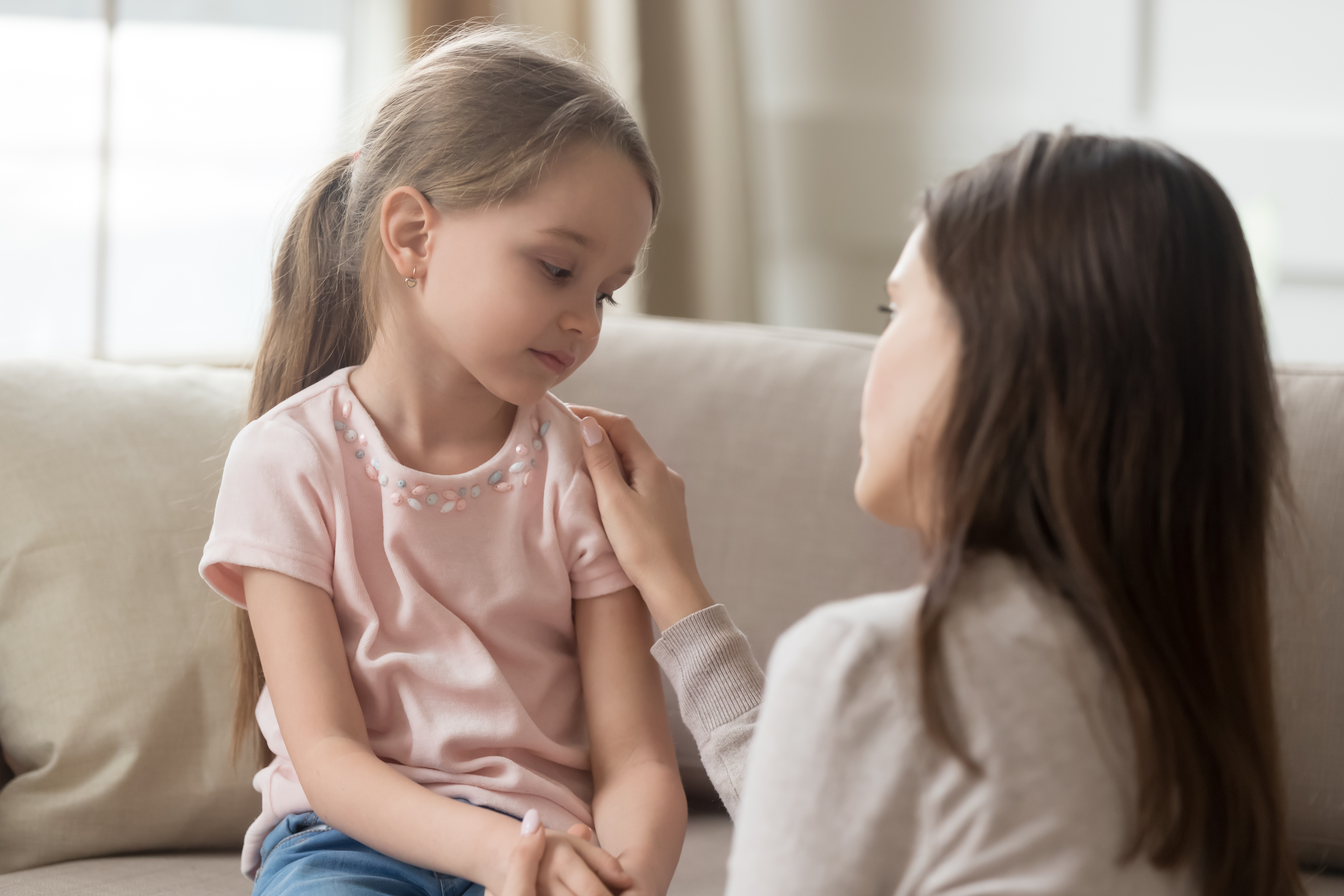 Return to Articles
Return to Articles
1.01.2025
Avoid Labeling Your Child

By YaeBin Kim, Ph.D., Parenting and Family Literacy Specialist & Heidi Petermeier, Program Officer, University of Nevada, Reno
What is Labeling?
In our everyday lives we place labels on many things, such as food, clothing, even people. We label people based on various social and biological features (age, gender, ethnicity, religion, race, occupation, appearance, etc.).
Labels depend formally on social norm or control and informally on the interactions among people, such as parents, teachers and peers.
While some labels are useful in categorizing information we process, such as “friendly or harmful,” other labels are not. Labeling theory, first developed by Howard Becker (1963), has highlighted the negative effects of labels on the people who are labeled.
Parents (also caregivers and adults) easily label children without consciously realizing it. Labeling children typically entails using an adjective to describe a child’s character, behavior or appearance.
For example, one may say, “He is too shy. She is bossy. He won’t try that. She is a leader. He is a natural born artist. She always cries.” What adults say, especially parents, carries a lot of weight with children, and surprisingly, they are extraordinary listeners.
Labels can greatly influence how children view themselves. Just because children demonstrate a pattern of behavior at one time does not mean they should be labeled as such. For example, if a child continuously hears, “she is a picky eater,” then she may well become a picky eater because her parents always say she is one.
Children are growing, developing and changing, and have endless potential. It’s important we don’t hinder this with harmful or hurtful labels.
The Dangers of Labeling
1. Labeling affects the way children see themselves.
The way parents (or other adults) label a child can have a lasting impact on how that child thinks of him or herself. When a child has been labeled, that label will become a part of his or her identity. Labels often do more damage than good by putting children in boxes.
2. Labeling influences the way children are treated.
When children are given labels, it affects not only the way they see themselves but also what is expected of them and how they are treated, which in turn, influences who they become.
For example, a strong-willed child labeled as a “troublemaker” will likely make it difficult for parents to show empathy and make the effort to correct the problem behavior. According to a famous study back in 1965, both negative and positive labels changed the way teachers treated students.
3. Labeling limits children’s potential.
Even if labels are not necessarily negative (such as “shy, kind, athletic, or creative”), they can still be of influence and place limits on a child’s potential. This is also true with positive labels.
Children may explore all types of interests, activities, and careers throughout their lives, so it is best not to label them as an “engineer,” a “girly-girl” or “math genius.” When children learn that anything is possible, they are more willing to take risks and work hard.
Choosing the Right Words
When children are labeled, it can affect their sense of self and how they are treated, and limit their potential. Negative labels can make parents (and caregivers or adults) expect the worst, and even positive labels can be a hindrance.
Remember when talking about a child, that labels can be difficult to remove. It is never too late to change and realize the negative impacts of labels, to become aware of a negative perception you may have, or to work to reframe that image.
To avoid unfavorable labeling, think before you speak and choose your words wisely.
Consider the cost of the potential label and how it will affect the child now and in the future. Use labels and/or words that will offer encouragement and support.
Practice how to reframe a possible label:
Instead of labeling a child as “a kind child” or “a helpful person” try to say “you are being kind” or “he was very helpful.”
Instead of saying “you are shy” or “don’t be shy,” try statements such as, “it takes a little while for you to feel comfortable with new people,” or “you are talkative with people you know well.”
Instead of labeling a child as a “whiner,” “cry-baby” or “selfish,” use descriptive, more positive words such as "tenderhearted" and "aware of their own feelings."
Instead of saying "ugh, you are so picky!" say, "that's okay if you don't want to try it this time."
Avoid limiting a child by labeling them unintentionally.
Click here to learn more about UNR Extension’s Partners in Parenting programs.
References
Source: https://naes.agnt.unr.edu/PMS/Pubs/1287_2019_21.pdf
Becker, H. (1963). Outsiders: Studies in the sociology of deviance. New York: Free Press of Glencoe.
Lemert, E. (1967). Human deviance, social problems and social control. Englewood Cliffs, New Jersey: Prentice Hall.
Hinshaw, S. P. (2005). The stigmatization of mental illness in children and parents: development issues, family concerns and research needs. Journal of child Psychology and Psychiatry, 46 (7), 714 – 734.
Pryor, J. B., Reeder, G. and Monroe, A. E. (2012). The infection of bad company: Stigma by association. Journal of Personality and Social Psychology, 102 (2), 224 – 241
Hicks, B. (2008). The problem with labeling children.
Rosenthal, R., Jacobson, L. (1966). Teachers' expectancies: Determinates of pupils' IQ gains. Psychological Reports, 19, 115-118
The University of Nevada, Reno is committed to providing a place of work and learning free of discrimination on the basis of a person's age, disability, whether actual or perceived by others (including service-connected disabilities), gender (including pregnancy related conditions), military status or military obligations, sexual orientation, gender identity or expression, genetic information, national origin, race, or religion. Where discrimination is found to have occurred, the University will act to stop the discrimination, to prevent its recurrence, to remedy its effects, and to discipline those responsible. Copyright © 2019 University of Nevada, Reno Extension.






